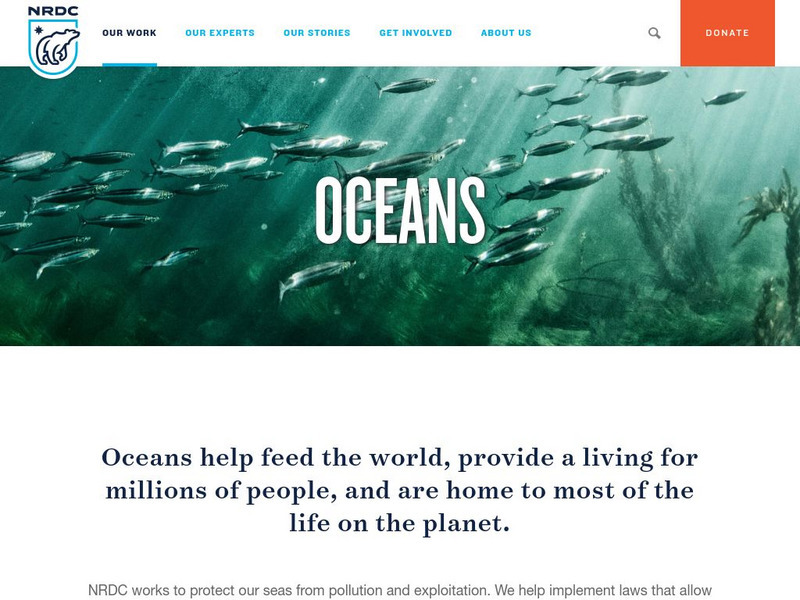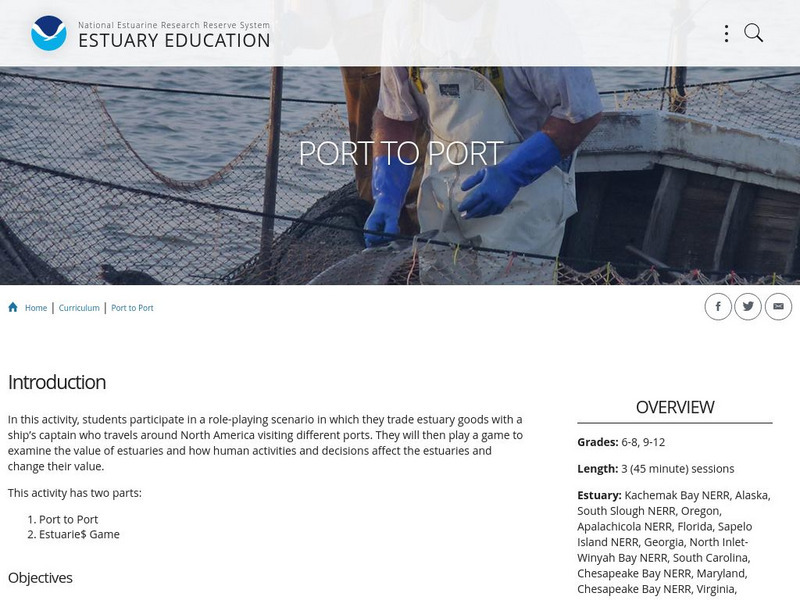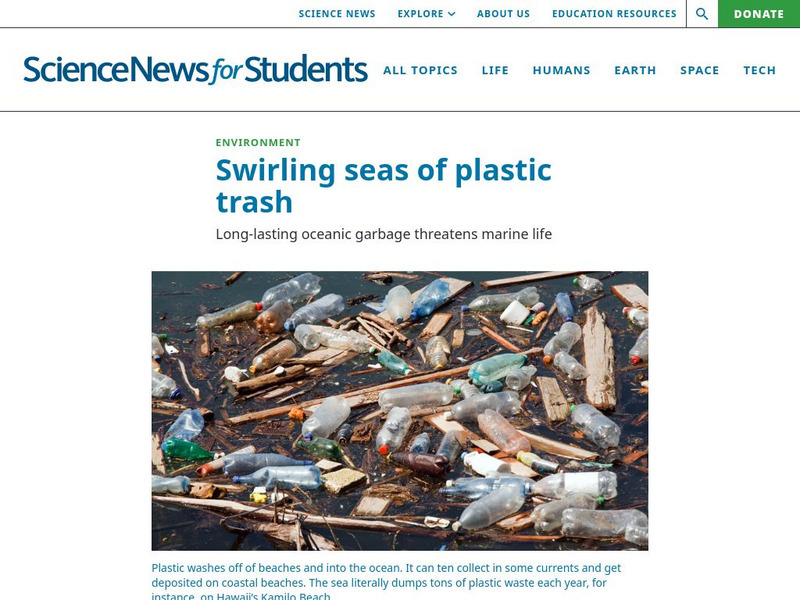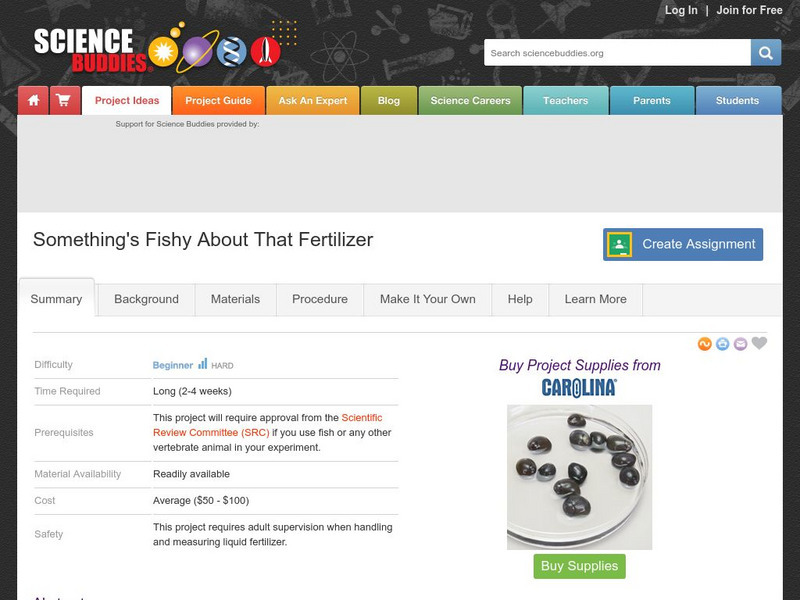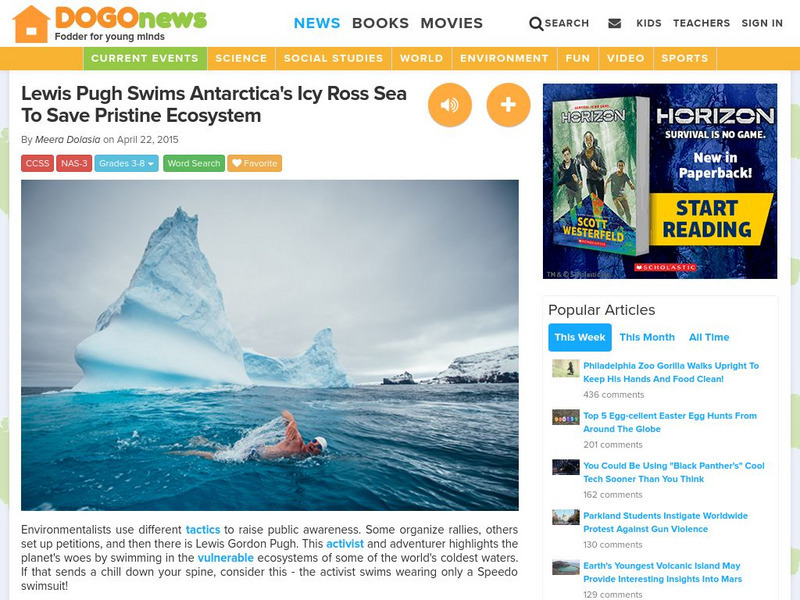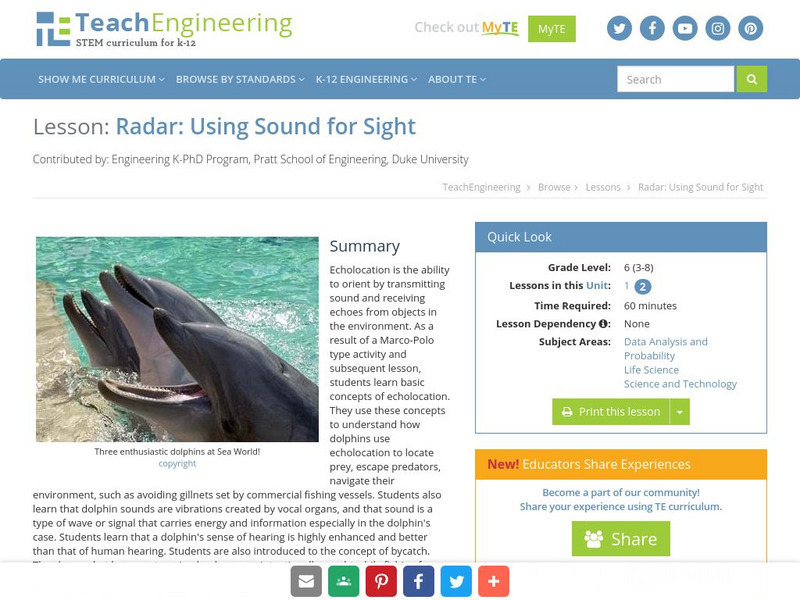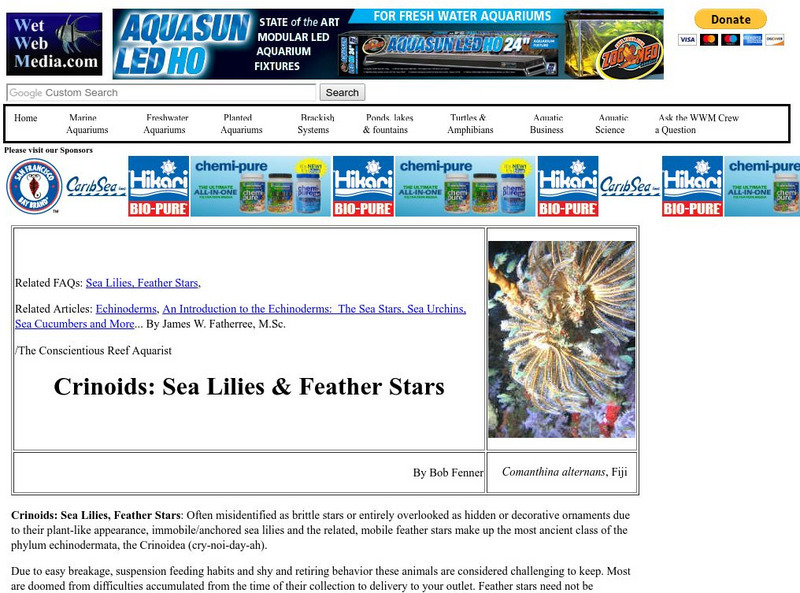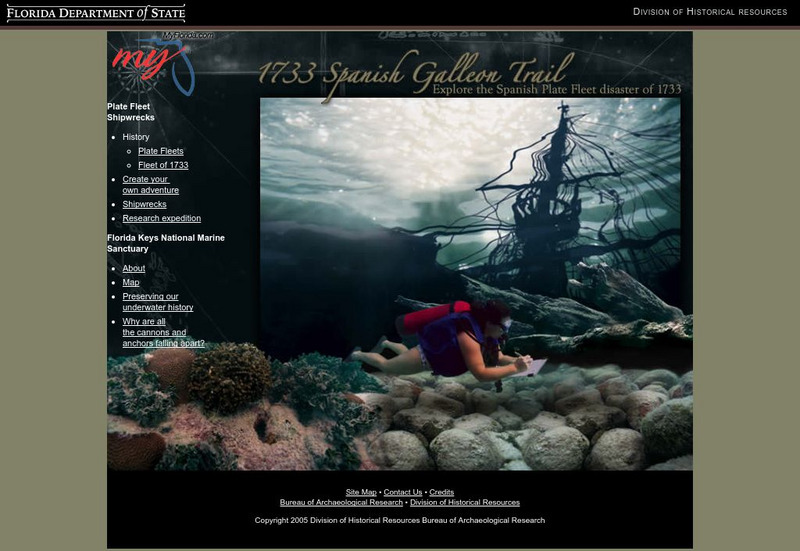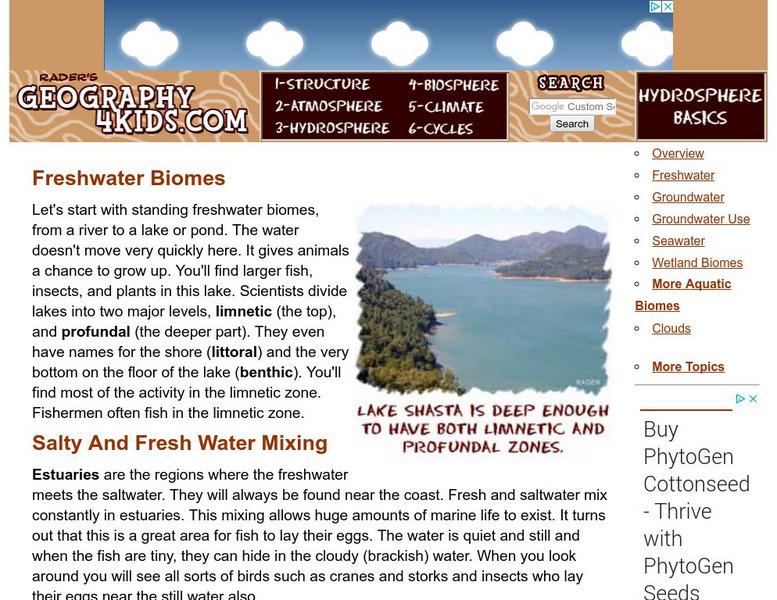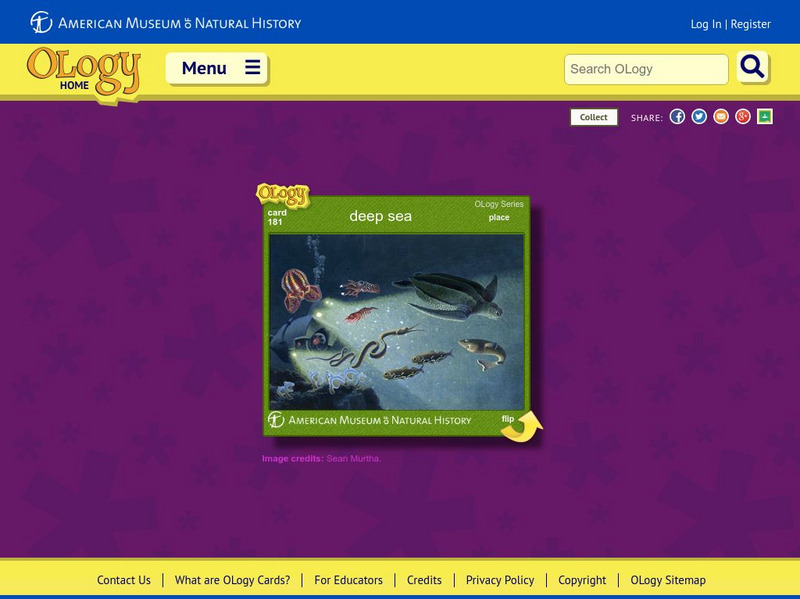The Association of the British Pharmaceutical Industry
Abpi: Human and Animal Habitats
An interactive learning game where students answer whether or not certain environments would be suitable for different animals. Printable worksheets are available for review at the end of the activity.
Other
Rutgers: c.o.o.l. Class: Physics Project: Plankton and Ocean Current
This c.o.o.l. Project focuses on tiny sea plankton and how they move in the oceans. Follow the scientific process outlined on the left, calculate and collect data to form your own predictions.
Other
Rutgers: c.o.o.l. Class: Biology Project: Gone Fishing
In this C.o.o.l. project, you are given a task to complete. You will predict where fish should be found in a specific region.Follow the steps of the scientific process outlined on the left menu bar. Useful educational tool for both...
Boise State University
Boise State University: Hadalpelagic Zone
View images and learn facts about this zone found deep in the ocean.
Boise State University
Boise State University: Ocean Exploration: Abyssopelagic (Abyssal) Zone
Learn about the very cold, dark region of the ocean known as the abyss. Includes information on the origin of the name of this ocean zone, as well as information on its depth and animal life.
Other
Winston Salem/forsyth Schools: Neritic Zone
This 25-page teacher resource (Word document) offers information and discussion questions on the ocean's neritic zone.
Other
National Resources Defense Council: Your Oceans
Learn about issues that are major threats to the health of our oceans; read personal stories of how these threats affect people whose lives are connected to these valuable resources. Includes possible solutions and things you can do to...
NOAA
Noaa: Estuaries: Noaa: Teachers: Middle School
This resource provides a middle school curriculum on the topic of estuaries. Includes a PDF (requires Adobe Reader).
NOAA
Noaa: Estuaries 101 Curriculum: Port to Port
Many people depend on the estuary to earn a living. Meet a Louisiana man who makes his living by harvesting crabs and shrimp, and is worried about the health of the estuary. Includes downloadable teacher guide and student materials.
Oregon Zoo
Oregon Zoo: Southern Sea Otter
Get to know the facts, behavior, breeding habits, and conservation of the southern sea otter who lives in the marine ecosystem.
Discovery Education
Discovery Education: Planet Ocean: The Ocean
This site is a one-page introduction to oceans. It provides a basic overview of Ocean life, size, and benefits.
Other
Reef Relief
Reef Relief is a nonprofit organization that seeks to preserve and protect living coral ecosystems. Learn more about coral and why it needs to be saved.
Other
Niwa: Estuaries
Want to understand the ecosystem of the estuaries or learn how estuaries are formed? This site contains information about estuaries to help you answer the questions above and more. Learn about the types of estuaries, their ecological and...
Society for Science and the Public
Science News for Students: Swirling Seas of Plastic Trash
Describes the multitude of plastic trash scientists have found on a beach in Hawaii and in the oceans. Explains what a gyre is, and how plastic trash gets trapped in the eye of a gyre. Looks at the serious impact plastic materials have...
Science Buddies
Science Buddies: Something's Fishy About That Fertilizer
Did you know that when you use fertilizer in your garden, it can eventually reach a lake, stream, or pond? There are many different chemicals present in fertilizers. Learn how they affect the aquatic organisms in the ecosystem within...
DOGO Media
Dogo News: Lewis Pugh Swims Antarctica's Icy Ross Sea
Article reports on activist Lewis Pugh's daring swims across the Ross Sea to bring awareness to the need for a marine protection area in the pristine region. Includes video.
TeachEngineering
Teach Engineering: Sound for Sight
Echolocation is the ability to orient by transmitting sound and receiving echoes from objects in the environment. As a result of a Marco-Polo type activity and subsequent lesson, students learn basic concepts of echolocation. They use...
American Institute of Biological Sciences
Action Bioscience: The Decline of North American Freshwater Fishes
An article addressing the need of immediate action to repair damages of declining life in the ecosystems of North American inland bodies of water.
Other
Wet Web Media: Crinoids
A great site on everything you need to know about crinoids, including species, types, environmental conditions, ecosystems, and pictures.
Other
Florida.com: Division of Historical Resources: Archaeology: Galleon Trail
In 1733 a fleet of many ships set sail from Havana for Spain. After a bout of wind changes and bad weather most of the ships were swamped or sunk covering a span of approximately 80 miles in the Florida Keys. The shipwrecks created many...
Nature Conservancy
Nature Conservancy: Planet Earth: Oceans and Coasts
Compilation of the Nature Conservancy's content about the ecology of oceans and coasts. Emphasis is on the biodiversity of these habitats and the human impact on the animal and plant life that live in our oceans and on our coasts.
Climate Literacy
Clean: Investigating Behavior of Krill
In this lab activity, students use brine shrimp as a substitute for krill to investigate how changes in environmental factors affect behavioral responses of krill in the unique environment of Antarctica.
American Museum of Natural History
American Museum of Natural History: Deep Sea O Logy Card
Flip over this interactive OLogy card to find fast facts, questions and answers, and similar bite-size pieces of information about the deep sea and the creatures that live there.
Other popular searches
- Marine Ecosystem Food Chain
- Crude Oil Marine Ecosystem
- Marine Ecosystem Balance
- Marine Ecosystem Unit
- Marine Ecosystem Habitats
- Marine Ecosystem Underwater
- Illustrate Marine Ecosystem
- Marine Ecosystem Project


